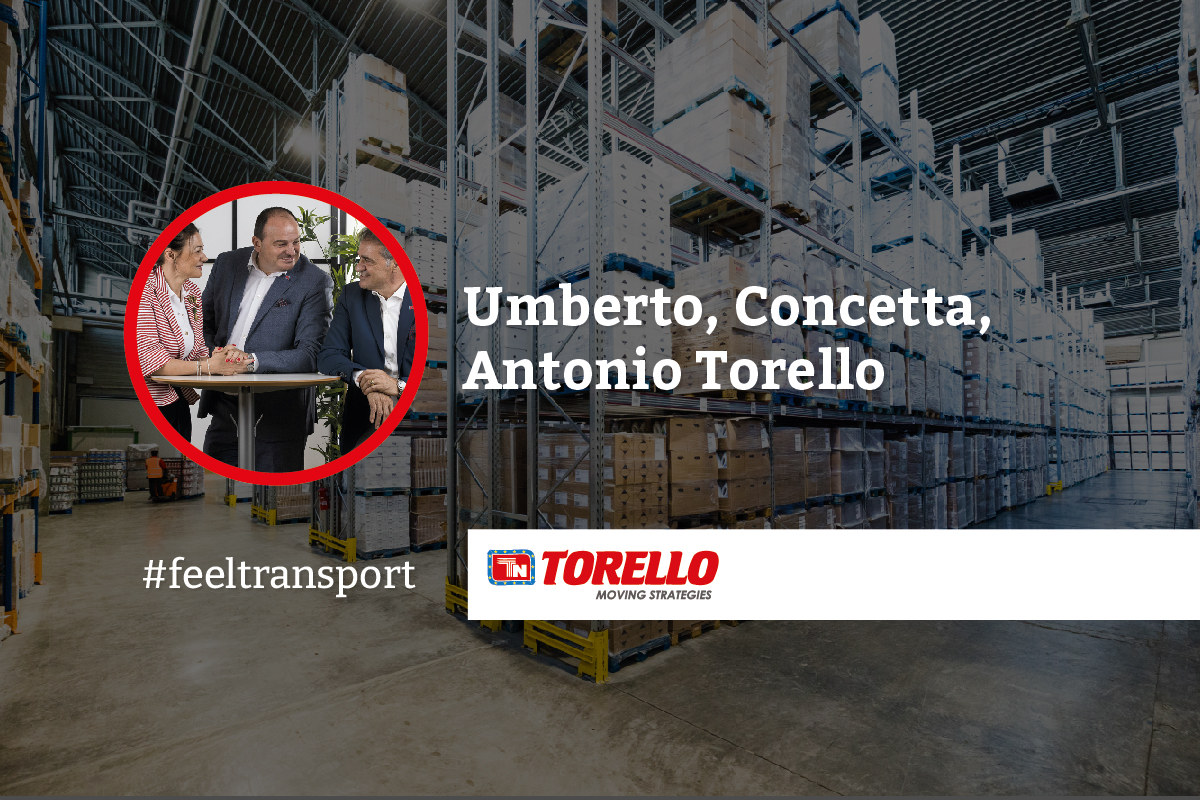New year, new resolutions, possibly some concretization. We attempt to respond to a question that many have already assumed: what will be the logistics?
We’d like to be able to say: completely sustainable, or at least at no significant cost to man, society, and the environment, but these are long-term goals. Meanwhile, we can work on it. What is certain is that we have advanced: logistics are now automated, faster, and more efficient.
But, returning to the question mark, how will logistics be handled?
A number of scenarios have already been envisioned, illustrated, and hypothesized. We pause for a moment on some points, most likely to repeat something already said. Umberto, Concetta, and Antonio Torello each choose a word to describe a topic that appears to be related to their own business, which moves from a desire for vengeance of logistics so that it is recognized, after working for years behind the scenes, invisible to most, as the backbone of our economic system.
Umberto Torello is certain. The logistics will be automated, which is particularly significant because it directly calls into question the traceability.
“Traceability and automated logistics are inextricably linked. Product tracking can be simplified by automating logistics, which allows for the collection and storage of detailed product location and status data at each stage of the journey. The ability to “record” a product’s path throughout its life cycle, from production to distribution and end use, allows us to create detailed product traceability reports. That’s not all. It opens up numerous possibilities for predictive analytics”.
The reference to the work being done in the OITAf Scientific Technical Committee is clear and concrete. Travel security is one of the Observatory’s most important concerns, as it strives to make the product journey more transparent. “Why can the consumer know the origin of the product and not how it has been handled logistically?”.
“Logistics travels and to travel you need an energy source”. It makes a speech more purely technical Antonio – “I would like a logistics more green and for a logistics more green one does not run away from the issue of alternative fuels and energy efficiency technologies. Biofuels, electricity, hydrogen, and natural gas are all options. There’s a lot of uncertainty. It is also important to consider the economic aspects and the feasibility of some of them in the short term, given that the production limit for fossil fuel vehicles, i.e. petrol and diesel, is set at 2035 in all 27 European Union countries”.
Another aspect to consider in terms of sustainability is cold logistics, which presents some significant challenges that cannot be underestimated given our core competency.
“Temperature-controlled products require special vehicles, such as refrigerated trucks, which have a greater environmental impact than other modes of transportation. The dream is that the transportation sector will be zero-emissions within a few decades. But let us help each other and get to know each other”.
Concetta envisions a more human-like sustainability that brings together the supply chain’s protagonists, such as changes in consumer behavior, new regulations, and changes in international trade. In short, networking with professionals in our industry and with those who decide the logistics at the time of purchase – “In order to reach agreement with all the actors in the supply chain, it is important that there is an open and transparent communication and that the needs of all the parties involved are taken into account”.
Personalization is another feature of Concetta’s very expensive logistics, which spends so much energy building listening relationships “The difference makes the difference in a global world! Companies want increasingly high-performance services, but not in the same way. I cannot believe that something is beneficial to everyone”.
Finally, perhaps a word that encompasses all of these aspects already exists: integrated. The ability to build an integrated logistics system is based on the ability to create a few standard elements as well as a lot of variability, giving it the properties to handle any scenario.
It appears that future logistics will be able to hybridize different methods, technologies, and approaches on a common ground. A stage in which everyone takes the lead.

